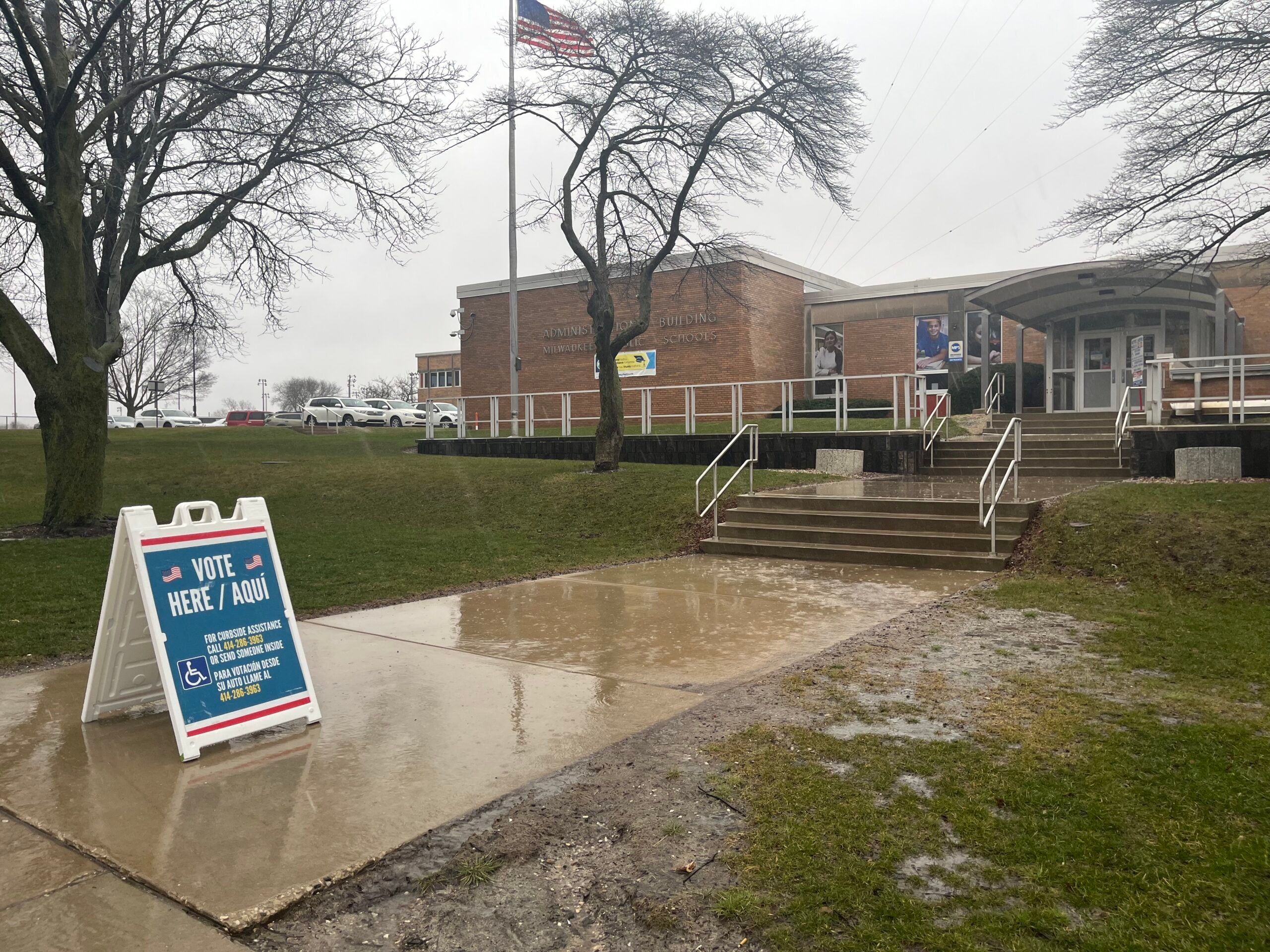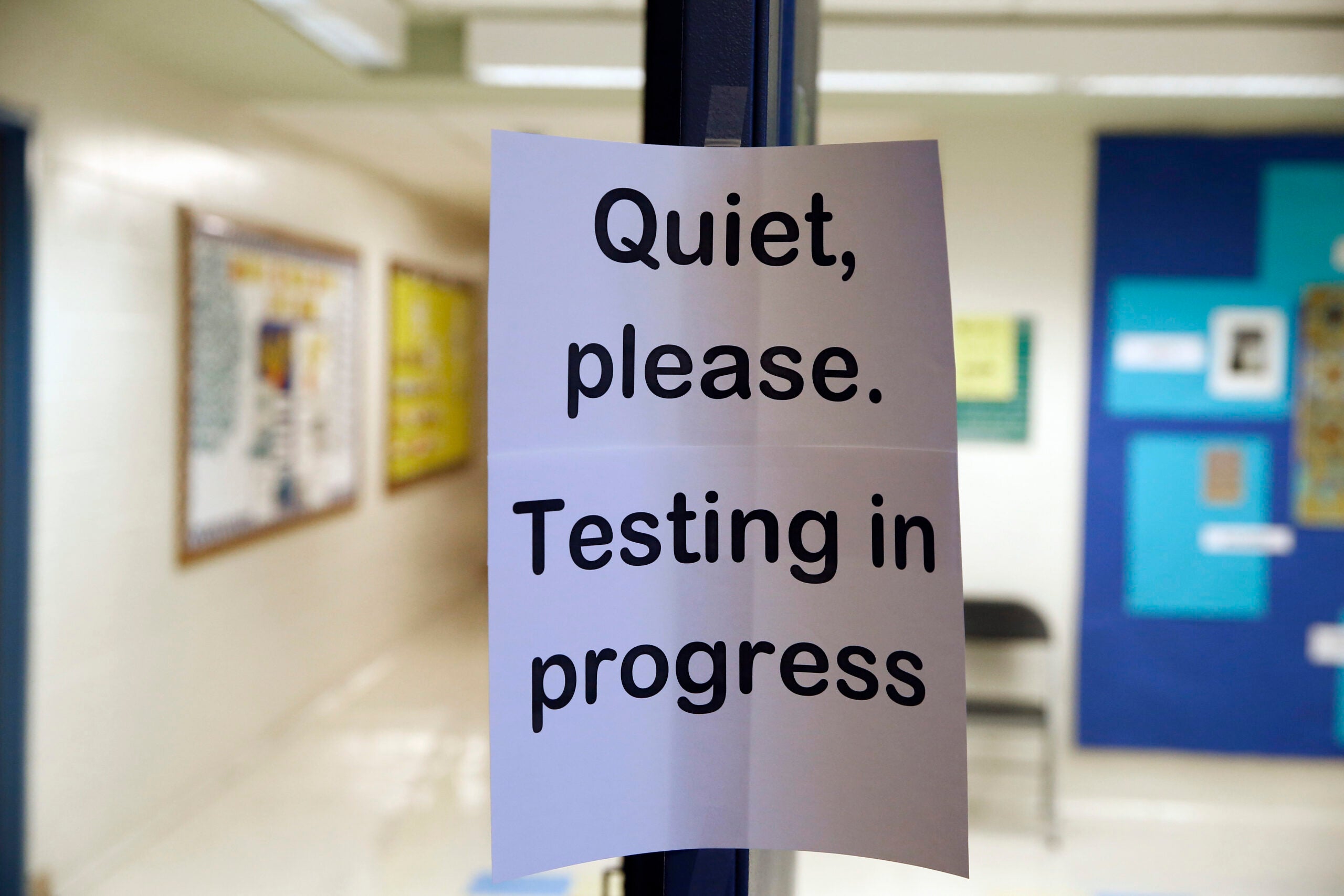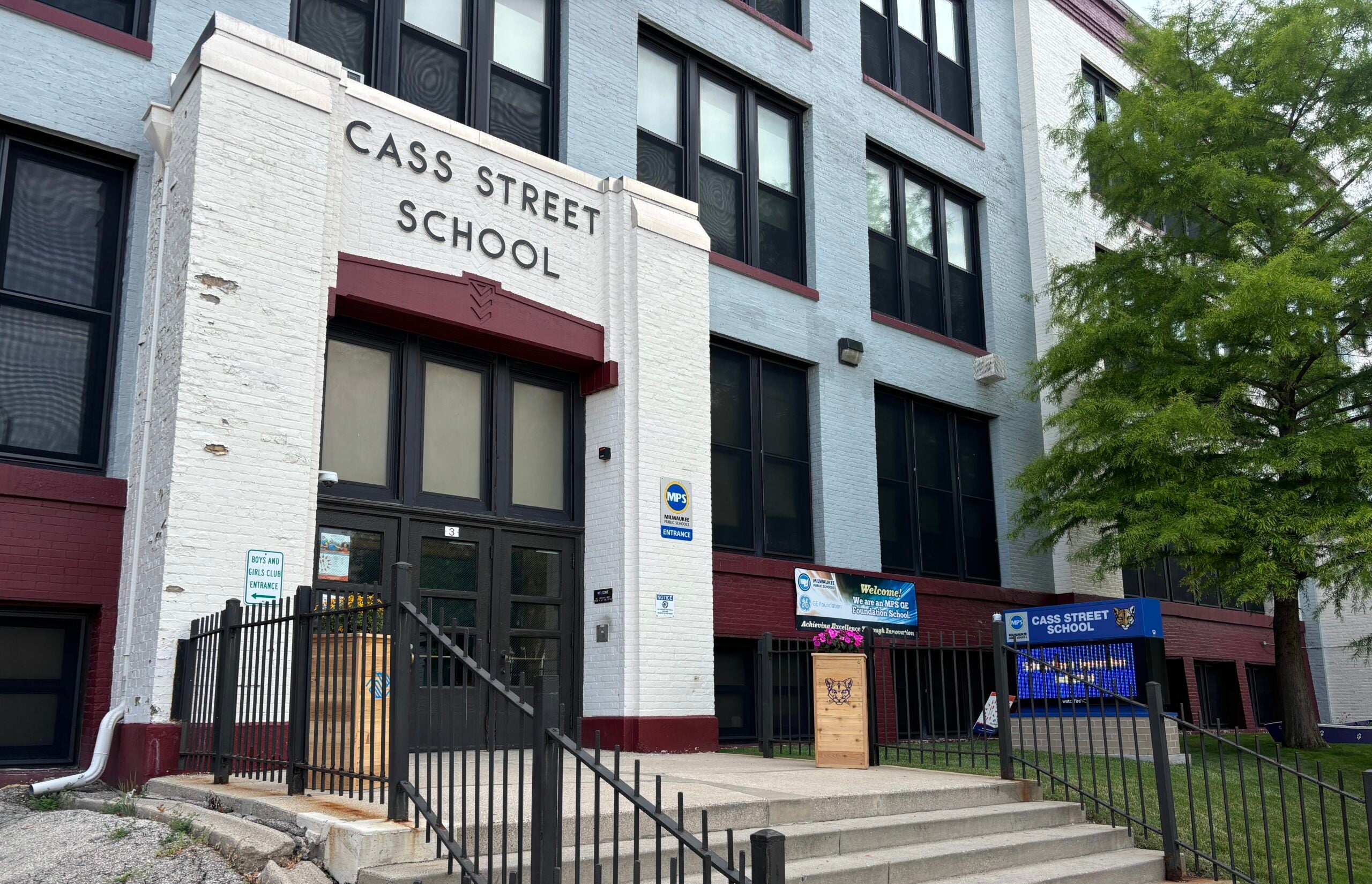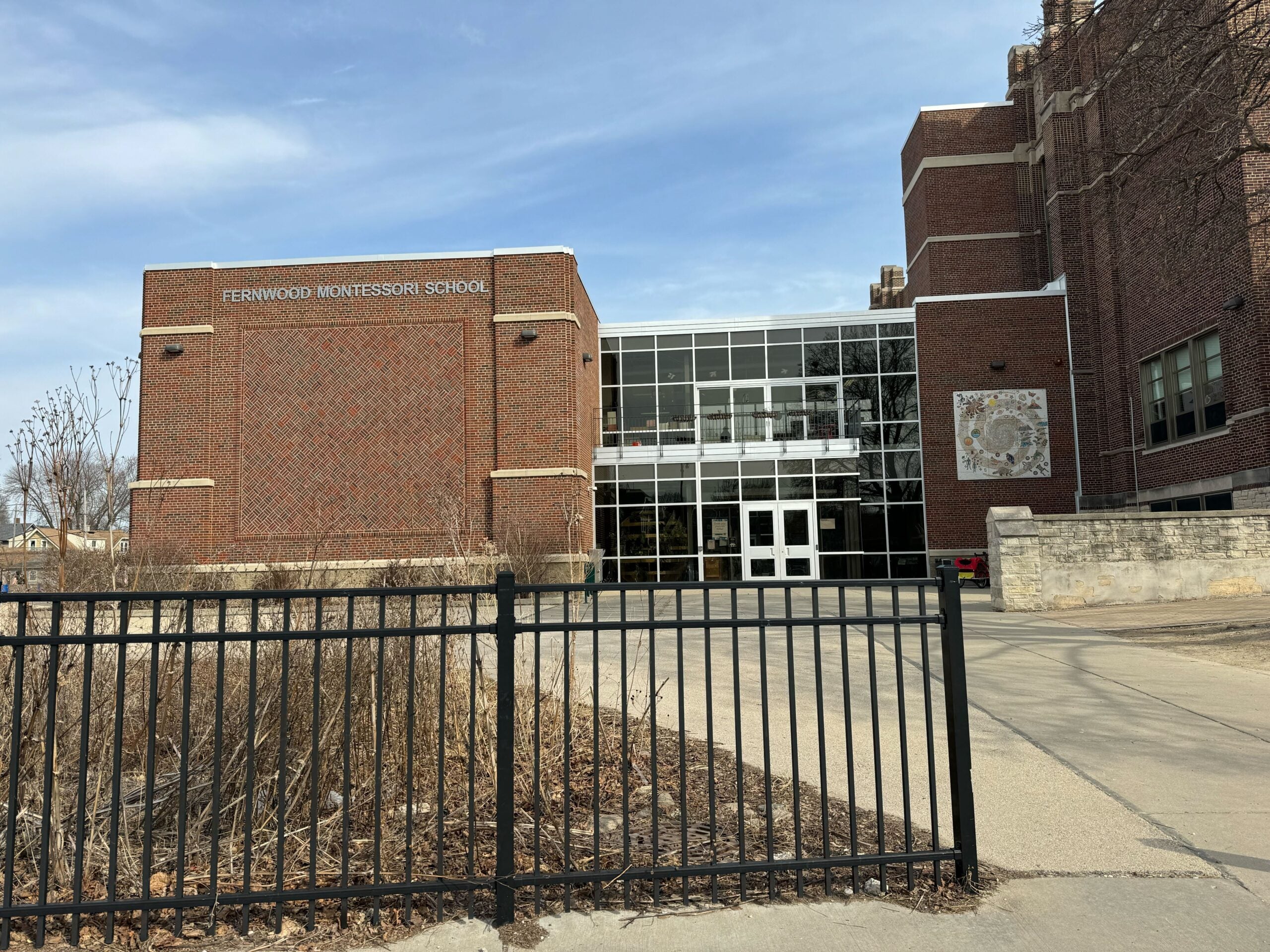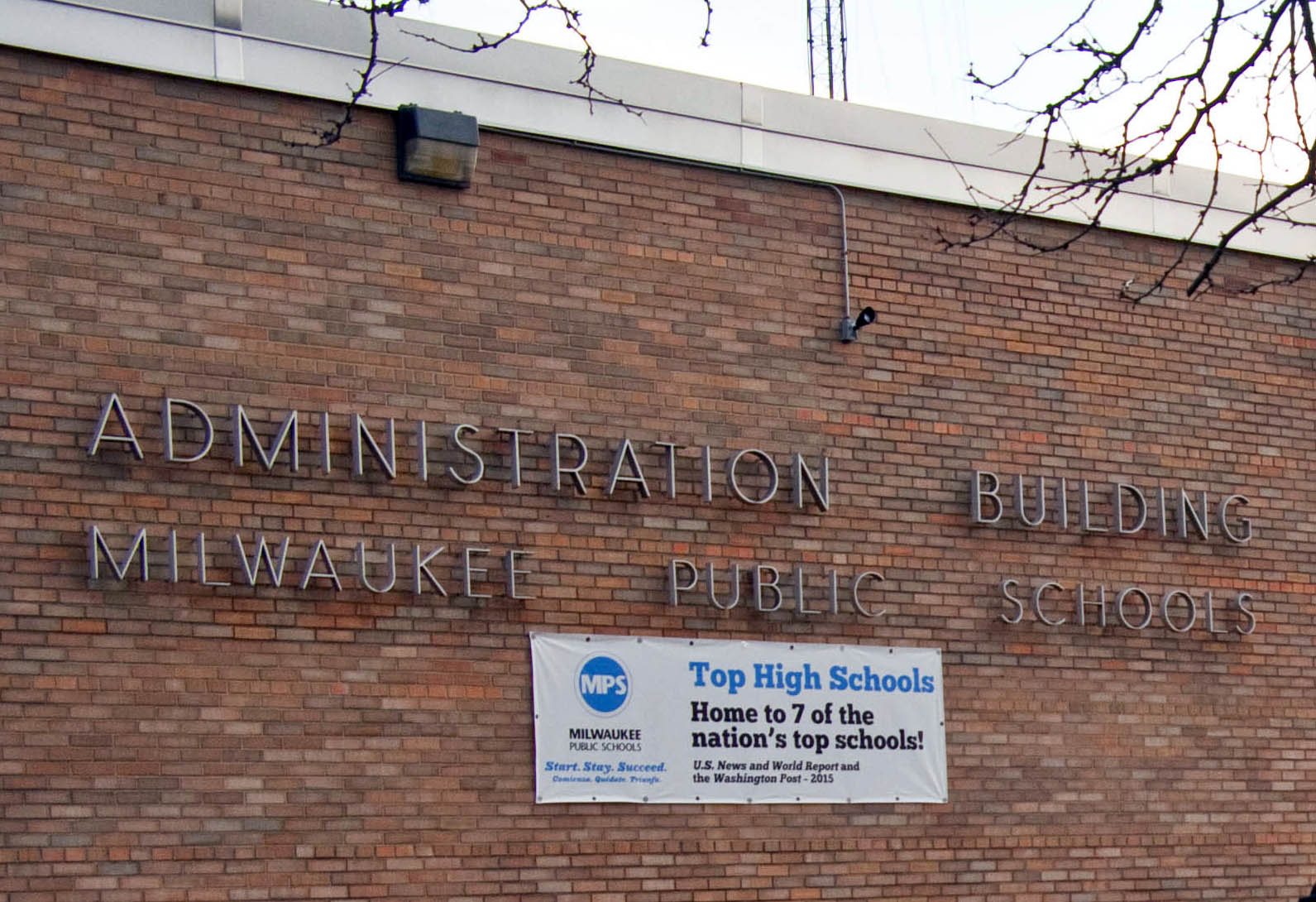Less than a week after voters narrowly approved a $252 million referendum for Milwaukee Public Schools, the district decided to eliminate full-time trauma support specialists from the schools in the 53206 zip code.
Before the April 2 election, MPS Superintendent Keith Posley said the money was needed to maintain services including “art, music, physical education classes, smaller class sizes, psychologists and social workers.”
But on April 8, four full-time Trauma Informed Coaches working in 53206 schools were told their positions are being eliminated.
News with a little more humanity
WPR’s “Wisconsin Today” newsletter keeps you connected to the state you love without feeling overwhelmed. No paywall. No agenda. No corporate filter.
“We understand that the news of (eliminating) staff is hard to hear but the Administration has had to make some difficult decisions with regard to Central Services budgets even though the referendum passed,” MPS Chief Human Resources Officer Adria Maddaleni wrote in an email to MPS Board Member Aisha Carr, who raised questions about the move.
Carr said staff were blindsided by the news their positions were being cut after the referendum was passed with the understanding the money would be used to secure school-based positions.
“As the violence affecting school-aged children intensifies, I am deeply troubled by the insufficient notice provided to support staff in 53206 and the unclear rationale behind the decision to eliminate crucial positions in a ZIP code grappling with a surge in violent crimes,” Carr said.
Staff whose positions are being eliminated will have the option to apply to other positions in the district.

Trauma specialists hired as part of 53206 initiative
Milwaukee’s 53206 ZIP code has come to symbolize social and economic distress.
A 2019 report from the University of Wisconsin-Milwaukee described the neighborhood as having “cumulative disadvantages,” including poverty, mass incarceration and pervasive joblessness that each reinforce the other.
Recognizing a need to improve outcomes for MPS students living in the neighborhood, the district launched the 53206 Initiative in 2017.
The initiative included goals to increase attendance and scores on standardized tests and decrease behavior infractions at the neighborhood’s eight schools.
It also placed a Trauma Informed Coach at each school and two Mobile Crisis Units. The mobile unit includes a social worker, psychologist, school counselor and nurse.
A trauma coach works with other support staff in the building including the parent coordinator to intervene and support issues related to trauma and other sensitive topics. This includes, but is not limited to, reaching out to Child Protective Services and the Milwaukee Police Department.
According to a plan obtained by WPR, the 2024-25 MPS budget includes having a trauma coach part-time in each of the eight schools in the 53206 zip code.
Board members will vote on the 2024-25 budget in May, but affected staff who want to keep their jobs in MPS have to tell the district before the budget is approved if they’ll take another position in the district.
The trauma specialists are being offered school-based teaching positions next year, according to Maddaleni’s email.
One trauma coach, who asked not to be named for fear of retaliation from the district, told WPR the change will move people back into teaching who might not want to be there.
“It also takes away from the kids, who need this service,” she said.
Carr called the timing “perplexing.”
“Why are such drastic measures being implemented now, particularly targeting individuals from my district and the zip code with the most urgent needs, a full month before the board has had the chance to explore alternative solutions,” Carr said.
MPS: Mental health exceeds national recommendations
In August 2023, Travis Pinter, senior director of special services with MPS, told WISN-12 how important trauma counselors are in schools.
“People often think of the victim immediately, which makes sense, but we have siblings of the victim, we have friends, we have witnesses and we have classmates,” Pinter told WISN. “Sometimes these are things that families couldn’t otherwise afford or have access to.”
Pinter, Posley and School Board President Marva Herndon did not respond to requests for comment.
The schools in the 53206 zip code include: Auer Avenue, Benjamin Franklin, Hopkins Lloyd, Gwen T. Jackson, Keefe Avenue and Robert M. LaFollette elementary schools; Andrew S. Douglas Middle School and North Division High School.
MPS spokesperson Nicole Armendariz said the district has increased mental health support for students since 2020, including adding a layered system that engages community support.
“Even after removing several trauma support staff to schools the district will have a better standard of care in relation to trauma, and other mental health support, than is outlined in the 53206 Initiative,” Armendariz said in an email. “The district’s standard of care will also continue to significantly exceed national recommendations.”
Armendariz said after the proposed changes are made, the ratio of district-employed mental health professionals in 53206 will be 77 to 1 compared to the overall district average of 156 to 1.
“All eight 53206 schools are part of the School Community Partnership for Mental Health, which provides therapy from community providers, for 100 percent coverage,” Armendariz said, adding the rest of the district has approximately 20 percent coverage from the partnership.
All MPS schools also have access to teletherapy.
“The district has always been clear that we are facing a $200 million shortfall and that the $140 million raised in the first year of the referendum would not be enough to cover the district’s entire budget shortfall,” Armendariz said. “Budgets will be impacted much less with the help from the referendum, but the district must still find cost savings.”
Wisconsin Public Radio, © Copyright 2025, Board of Regents of the University of Wisconsin System and Wisconsin Educational Communications Board.

